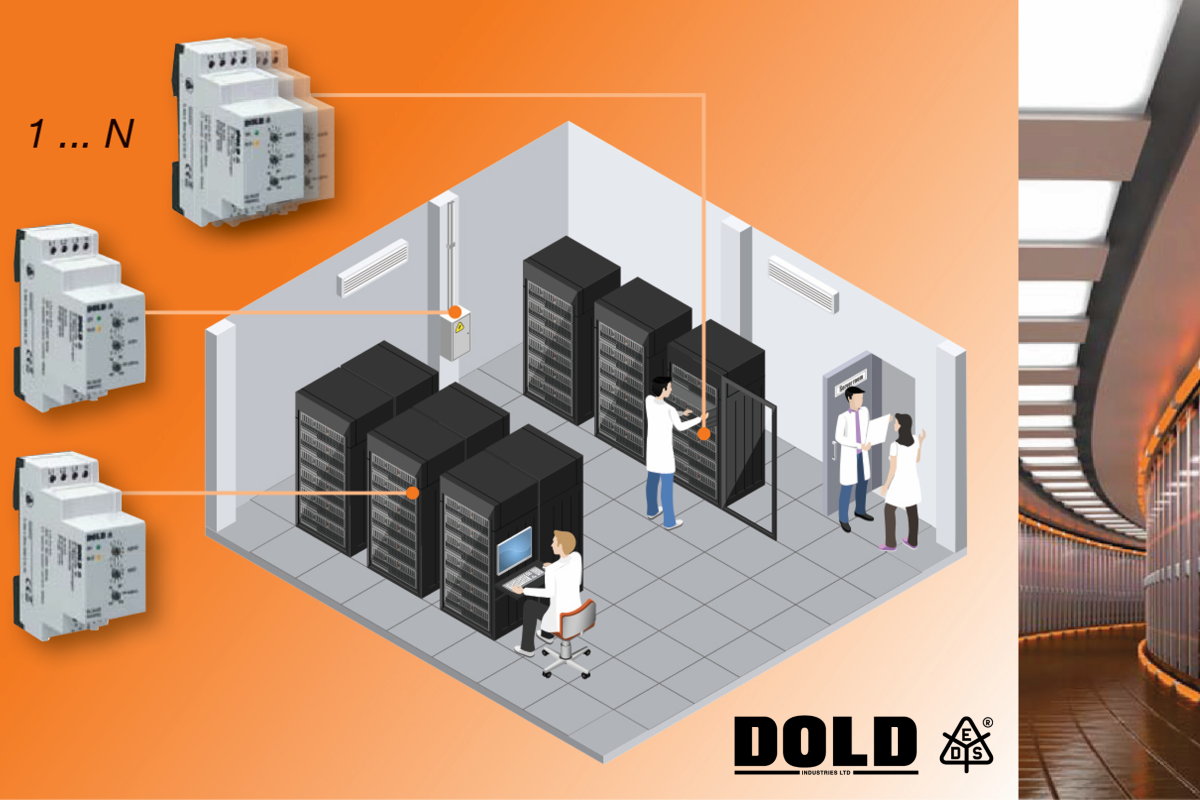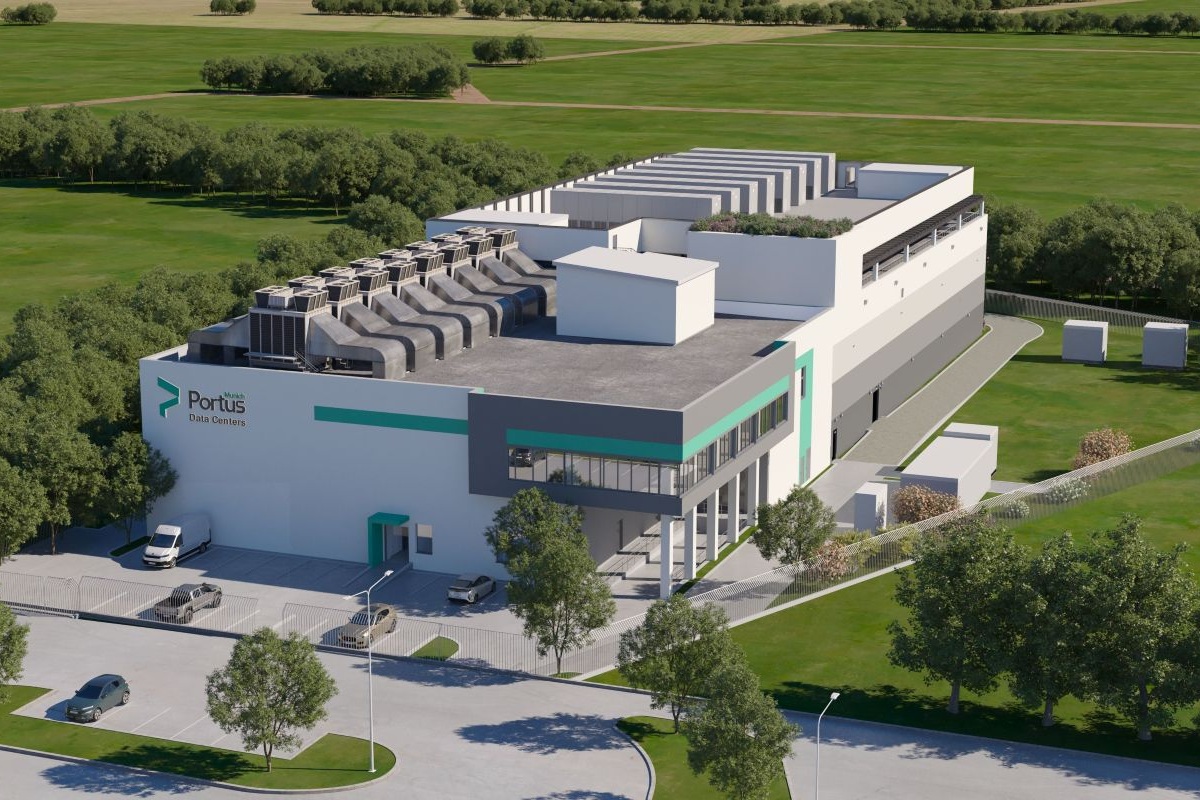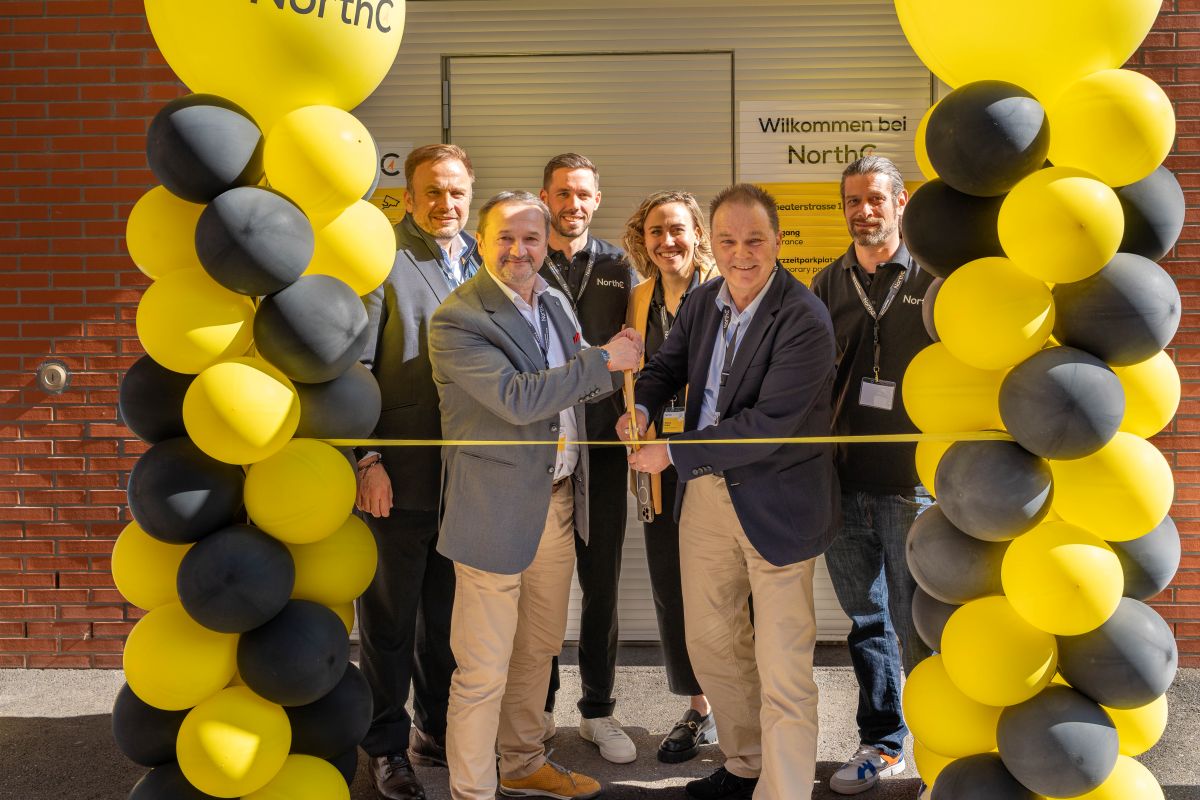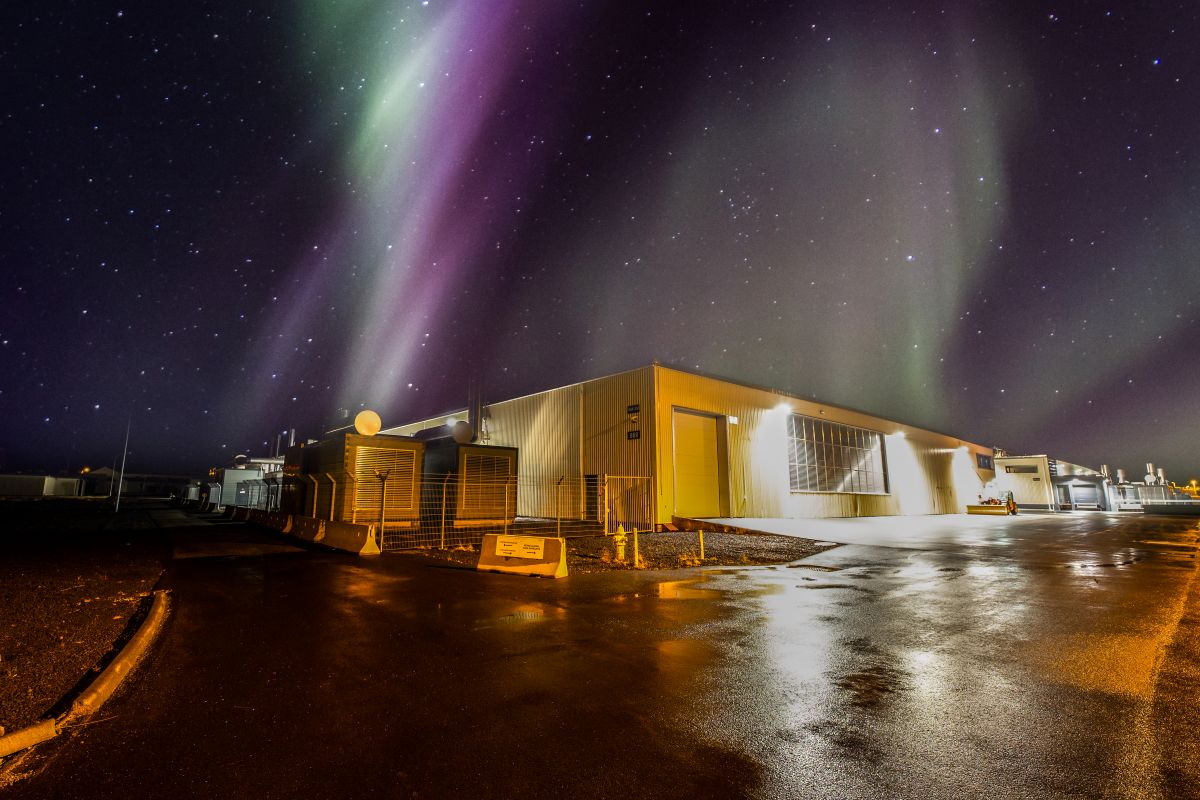Colocation Strategies for Scalable Data Centre Operations
Colocation Strategies for Scalable Data Centre Operations
Data Centre Operations: Optimising Infrastructure for Performance and Reliability
Exclusive
Colocation's role in an AI world
In this article, Mark Pestridge, Executive Vice President & General Manager, Telehouse Europe, explores colocation’s dual role in supporting today’s transformation and tomorrow’s artificial intelligence (AI):
Behind the curtain of AI
The proliferation of AI solutions is a source of headlines which can easily obscure the critical role of data centres as ever more workloads run in the background. Recent research by S&P Global Market Intelligence, commissioned by Telehouse, shines a light on what is going on behind the scenes. It reveals that 76% of AI workloads are hosted in the cloud or in data centres, including colocation facilities.
AI, however, is not the sole focus of every organisation. Many are undertaking technical transformations that data centres must be capable of supporting, while also providing infrastructure with the flexibility to scale for future AI integrations. This question of flexibility is becoming central to how colocation providers serve a growing market.
The growth of AI and its processing needs
The research shows between 16% and 20% of overall workloads are AI-related. While hyperscalers lead with 35% of these workloads, third-party colocation data centres hold a 10% share. Within this space, several factors are shaping buying decisions, including GPU-as-a-Service (18%), access to specialised cooling (15%), and GPU-based compute installation (13%).
One key issue is becoming increasingly important as AI workloads grow: effective cooling. The GPUs used in AI processing are only as reliable as the cooling systems that support them, which demands a more advanced set of cooling technologies to cope with the heat generated by their higher power densities. This brings liquid technology into play, as it requires less power than traditional air cooling, making it a more efficient, reliable method.
Liquid cooling may be essential for AI growth, but it also has more immediate gains for data centre operators. By enabling higher rack densities – some reaching up to 100KW – it can accommodate a wider range of power-hungry workloads within a smaller footprint. At the same time, its lower energy requirements help to reduce costs and improve PUE ratings. These efficiency gains contribute directly to the reduction of carbon footprints and boost attainment of environmental, social, and governmental (ESG) goals.
Cloud on-ramps for AI lift-off
As well as meeting present-day digital demands from customers, data centre operators must consider cloud on-ramps for AI workloads. More than 90% of companies view on-ramps as either critical or quite important to AI/ML architecture, with the potential for multiple AI-related functions. This includes moving data in and out of the cloud for training inferencing purposes, alongside the transportation of AI-related data for analysis.
Cloud on-ramps are also important for digital transformation strategies. As a direct, secure connection, they enable faster, more reliable access to cloud services from a data centre. Low-latency connectivity between business networks and other cloud services via a private connection is enabled by cloud exchanges with links to the leading cloud providers, such as Amazon Web Services and Microsoft Azure. If they provide access to cloud on-ramps and cloud exchanges, colocation services should be at the centre of distributed AI workloads that make use of public cloud services.
The value of consultancy and expertise
The research is also clear about the role of expertise in guiding the data centre choices for both transformation strategies and longer-term AI plans. A fifth of respondents (20%) cite AI/ML consulting services as the main differentiator when considering a colocation provider. This is especially true for healthcare and life sciences companies which value the availability of IT skills and expertise.
Remote and smart-hands services offered by leading data centre operators clearly have an important role in offering guidance on how organisations meet their goals. In colocation centres, smart-hands services make it easier to configure changes to equipment and to install new equipment.
Colocation has a central role
As AI workloads grow to power dramatic new use cases, colocation is expanding its critical support. It offers the infrastructure, connectivity, and expertise that organisations require to achieve their current targets and the requirements of the AI-shaped future. The combination of advanced cooling systems, direct cloud connectivity, and value-added services makes colocation fundamental to evolving workloads, whether focused on digital transformation or AI.
For more from Telehouse, click here.
Joe Peck - 29 August 2025
Colocation Strategies for Scalable Data Centre Operations
Data Centre Operations: Optimising Infrastructure for Performance and Reliability
Edge Computing in Modern Data Centre Operations
F5 and Equinix expand collaboration
US technology company F5 and Equinix, a US-based data centre and colocation provider, today announced an expansion of their partnership to support secure deployment of modern applications and AI workloads across hybrid multi-cloud environments.
The collaboration integrates the F5 Application Delivery and Security Platform (ADSP) with Equinix’s Network Edge and Equinix Fabric with the intention of enabling global, virtualised deployment of application services without requiring physical infrastructure.
The move is aimed at helping enterprises reduce the operational complexity and cost associated with managing distributed digital infrastructure, while supporting regulatory compliance and improved security.
A key feature of the expanded offering is the availability of F5 Distributed Cloud Customer Edge as a virtual network function (VNF) on Equinix Network Edge. This should enable organisations to provision F5’s application delivery and security services across Equinix’s global infrastructure in near real-time, allowing for rapid scalability without physical hardware deployments.
The system supports a range of AI-related use cases, including low-latency environments for inference and retrieval-augmented generation (RAG), while also addressing concerns around data sovereignty and privacy.
John Maddison, Chief Product and Corporate Marketing Officer at F5, comments, “AI is putting massive new demands on infrastructure, especially at the edge, where latency, security, and control are critical.
"Enterprises need faster, more secure ways to deploy and connect applications and AI workloads globally without the complexity of managing physical infrastructure. Our expanded partnership with Equinix gives customers exactly that: a flexible, high-performance foundation to support AI-driven use cases and deliver exceptional digital experiences across any environment.”
Key features of the offering
• Support for distributed AI workloads – Enables secure, high-speed connections for AI use cases, including inference and RAG, while protecting sensitive data
• Global deployment without physical infrastructure – Allows enterprises to launch application services in new locations using virtual functions, reducing time to market and capital expenditure
• Improved agility and responsiveness – Provides the ability to scale and adapt infrastructure to changing demands across multiple environments
• Unified policy enforcement – Supports consistent application of security and compliance policies across different regions and jurisdictions
The integration also provides F5 customers with access to Equinix’s global interconnection ecosystem, including low-latency links to major cloud providers, while Equinix users can now deploy F5 services directly through the Network Edge platform.
Existing purchasing agreements can be used by customers of either company to access the joint system.
Maryam Zand, Vice President of Partnerships and Ecosystem Development at Equinix, says, “Organisations are racing to adopt AI, but legacy infrastructure can slow them down or expose them to unnecessary risk.
"By partnering with F5, we’re giving our customers a seamless way to scale their AI applications and modern distributed workloads with built-in security, compliance, and performance. This solution can help businesses innovate faster, safeguard their operations, and maintain a competitive edge.”
Joe Peck - 7 August 2025
Colocation Strategies for Scalable Data Centre Operations
Data Centre Operations: Optimising Infrastructure for Performance and Reliability
Data Centres
News
Asanti partners with Storm ID
Asanti Data Centres, a UK data centre provider, has today announced a strategic partnership with Storm ID, a digital transformation consultancy, to deliver cloud-aligned colocation hosting services for public sector organisations.
This partnership combines Storm ID’s experience in public cloud technologies, service design, and AI-powered platforms with Asanti’s UK-wide network of edge data centres. Together, they aim to empower public sector bodies to modernise legacy systems, enhance digital services, and ensure compliance with UK data sovereignty requirements.
“As our colocation partner, Asanti’s UK-wide infrastructure enhances our ability to deliver secure, resilient, hybrid hosting solutions to our clients,” says Mike Cashin, Director at Storm ID. “By combining our public cloud expertise with Asanti’s data centre expertise, we can provide public sector organisations with seamless access to modern, cloud-aligned, hybrid hosting solutions.”
Storm ID previously helped with digital service delivery for the Scottish Government, NHS Scotland, and other public institutions, whilst Asanti’s Livingston data centre is Scotland’s only dual-power-fed data centre.
“This partnership with Storm ID is a strong alignment of values and vision,” comments Stewart Laing, CEO of Asanti Data Centres. “Storm ID’s track record in delivering transformative digital services for the public sector speaks for itself. Coupled with our scalable, resilient infrastructure, we’re excited to help enable a new era of secure, hybrid hosting solutions for public organisations across the UK.”
The collaboration will focus on enabling digital transformation within regulated and critical sectors, with an emphasis on hybrid hosting architectures that blend local colocation with public cloud scalability.
Joe Peck - 10 June 2025
Colocation Strategies for Scalable Data Centre Operations
Data Centre Operations: Optimising Infrastructure for Performance and Reliability
Data Centres
Edge Computing in Modern Data Centre Operations
Pulsant extends LINX partnership becoming ConneXions reseller
Pulsant, a UK edge infrastructure provider, has announced it has become a ConneXions Reseller Partner with the London Internet Exchange (LINX).
Pulsant is a long-standing member of LINX, with Points of Presence (PoPs) in Manchester and Edinburgh, and active participation across all three major UK LINX Internet Exchange Points (IXPs), including London. This enhanced partnership intends to allow clients to take advantage of this geographic diversity, with connectivity across all three strategic locations in the UK.
"No other colocation provider connects all three LINX points of presence with a national backbone. This collaboration underscores our commitment to providing clients with access to our leading platformEDGE infrastructure and connectivity options through a robust, low-latency network fabric. This ensures they can operate efficiently, develop and deploy services quickly, and grow their business effectively, wherever they are," says Mike Hoy, CTO at Pulsant.
Pulsant clients collocated in any of their data centres across the UK can, via a dedicated connection, access LINX services in London as well as Manchester and Edinburgh. The recently acquired SCC data centres in Birmingham and Fareham will be added in the second half of 2025.
Colin Peckham, Interconnection and Partnerships manager, LINX, comments, “It’s great when we collaborate with partners like Pulsant who are just as passionate about delivering value and future-proof technology to their clients. We are excited to work with [them], and welcome networks collocated in any of Pulsant’s UK data centres to LINX, from Milton Keynes to Newcastle!
“LINX is one of the world's largest and most respected internet exchanges, facilitating high-speed, low-latency connections for a wide range of businesses. By becoming a ConneXions Reseller Partner, Pulsant is positioned to offer even more comprehensive solutions to its clients, further solidifying its role as a key player in the data centre and cloud services industry.”
For more from Pulsant, click here.
Joe Peck - 6 June 2025
Colocation Strategies for Scalable Data Centre Operations
Data Centre Operations: Optimising Infrastructure for Performance and Reliability
Data Centres
News
DOLD's energy monitoring keeps colocation costs in-check
DOLD Industries UK, a trusted provider of network monitoring and functional safety solutions across industrial and infrastructure sectors, has launched the RL9405 Smart Energy Meter – enabling colocation customers to gain accurate control over rack-level energy use, meaning they only pay for what you use.
The ultra-compact RL9405 (just 35mm wide) fits easily into dense server racks, offering precise, real-time energy monitoring – without complex wiring or infrastructure upgrades. Fast to deploy, it enables fair, usage-based billing, pinpoints system inefficiencies, optimises workloads, and helps avoid costly overuse.
Track live and historical energy data, detect anomalies, and flag potential issues early – enabling smarter preventive maintenance and reduced downtime. Even during power outages, the RL9405 securely stores energy data, ensuring critical insights are never lost.
With Modbus TCP/RTU connectivity, remote monitoring is simple and seamless, integrating with existing systems to optimise operational efficiency. For more information, click here.
For more from DOLD Industries, click here.
Simon Rowley - 14 May 2025
Colocation Strategies for Scalable Data Centre Operations
Data Centre Operations: Optimising Infrastructure for Performance and Reliability
Data Centres
News
Portus Data Centers announces additional facility for Munich
Portus Data Centers has announced the further expansion of its Munich colocation campus with the construction of an additional 5.5 MW facility - Portus Data Centers Munich 2 (MUC2). This will add a further 2,200 square metres of white space and increase the total IT load capacity available to 7 MW.
Construction of the new Tier III+ carrier-neutral data centre has already started on the Munich campus and initial capacity will be delivered in late 2026. The new data centre will be fully EnEfG (German Energy Efficiency law) compliant and will cater for workloads ranging from normal power densities all the way to AI and HPC workloads including ultra-high density using liquid cooling. As such Portus has developed an AI Native reference design that makes the data centre fully future-proof. Providing energy efficiencies of PUE 1.2 or lower, it will use 100% renewably sourced power and the latest cooling technologies.
Portus Data Centers Munich serves the largest concentration of GDP in Germany, the company reports, meeting the growing digital requirements of local enterprises and service providers alongside multinational providers requiring compliance with data sovereignty regulations as well as secure, compliant, scalable and low latency facilities.
"With the investment and expansion at the Munich site we are not only setting technological but also ecological standards,” says Marco Kain, Managing Director, Portus Data Centers Munich. “Our new data centre is more than just a building - it is a clear commitment to digital sovereignty, sustainability and innovative strength in Germany. We are creating a platform on which our customers can shape their digital future, securely and reliably.”
Adriaan Oosthoek, Chairman, Portus Data Centers, adds, “Our new development at Portus Data Centers Munich marks an important milestone and aligns with our buy and build growth strategy for the DACH region. It is therefore only a first step, and we will continue to add capacity as necessary across the region to meet the strong demand for sustainable high-performance, low-latency IT infrastructure.”
Eoghan Cremin, Operations Director at Mercury Construction, comments, “We are proud to continue our partnership with Portus on this significant project following the successful completion of the pre-construction phase. The main contract marks an exciting next step and we look forward to bringing our extensive experience, innovative approach and cutting-edge technology to deliver this advanced data centre extension in Munich.
“Our team is fully committed to ensuring a seamless integration with the existing facility, managing complex logistics within a constrained site, and delivering to the highest standards while remaining considerate of the local community and environment. We value the trust Portus Data Centers has placed in Mercury and are excited to continue working together to bring this project to life.”
For more from Portus Data Centers, click here.
Simon Rowley - 8 May 2025
Colocation Strategies for Scalable Data Centre Operations
Data Centre Operations: Optimising Infrastructure for Performance and Reliability
Data Centres
News
Sustainable Infrastructure: Building Resilient, Low-Carbon Projects
NorthC inaugurates data centre in Switzerland
NorthC Group has announced that it has officially opened its data centre in Winterthur, Switzerland.
Its fourth data centre in the country, the Winterthur site is an important hub for regional data communication and offers companies access to a wide range of connectivity providers, such as Colt, Gas&Com and Init 7. Located strategically near the Turm Areal, the newly opened data centre combines a central location with colocation and connectivity services in an area of approximately 1,100m².
In Winterthur, NorthC offers tailored colocation services, secure and direct cloud connections, and guaranteed bandwidths and speeds for business-critical applications. Links to NorthC’s data centres in Münchenstein (Basel) 1&2 and Biel (Bern) via a high-speed backbone offer a seamless, reliable connection to a large number of cloud and IT service providers.
The new data centre has a capacity of 1.8 MW, with expansion options for further growth. The data centre runs on 100% renewable energy and, in accordance with the company's sustainability strategy for 2030, the intention is to launch projects in Winterthur that will dissipate residual heat in a sensible and environmentally friendly manner.
Patrik Hofer, Managing Director Switzerland, NorthC, comments, "Regionality is very important to us - we offer regional data centre services with an international reach. After Münchenstein and Biel, we now also inaugurate our data centre and new office here in Winterthur. The demand for data centre outsourcing, connectivity services and hybrid cloud solutions is constantly increasing among companies from various industries. With our regional approach, we can offer customised solutions for businesses in the Winterthur region that meet the highest standards of quality, security and sustainability. Work regionally and be globally connected: the data stays local, the reach is global."
Dr Ralph Peterli, Managing Director of the Winterthur Chamber of Commerce and Employers' Association, adds, "Winterthur is home to many technology leaders from a wide variety of sectors. Whether they are large corporations or SMEs, all companies manage ever-increasing volumes of data and must be able to guarantee their security at all times. It's good to know that NorthC is a regional company that offers stable and secure IT infrastructures in the city."
For more from NorthC, click here.
Simon Rowley - 21 March 2025
Colocation Strategies for Scalable Data Centre Operations
Data Centre Operations: Optimising Infrastructure for Performance and Reliability
Data Centres
News
Verne strikes deal with Nebius to expand Europe’s AI capacity
Verne, a provider of sustainably powered HPC data centres across the Nordics, has announced that Nebius, a global AI infrastructure provider, will be colocating a cluster of NVIDIA H200 GPUs at Verne’s data centre campus in Iceland. This collaboration marks the largest single implementation in Verne's history in Iceland, with Nebius deploying a 10MW cluster.
This installation is part of Nebius’ ambitious build-out of AI infrastructure across the US and Europe, supporting its mission to provide scalable, energy-efficient technologies for intensive AI workloads. As one of Europe’s leading providers of GPU capacity, Nebius selected Verne for its expertise, renewable energy-driven operations, and ability to meet precise technical and geographical requirements.
Verne’s Icelandic facility, uniquely located on a former NATO base and powered entirely by Iceland’s 100% renewable hydroelectric and geothermal energy resources, aligns perfectly with Nebius’ approach to adopting sustainability principles in its infrastructure while delivering top-tier performance.
“Alongside Verne’s scalable infrastructure and Iceland’s renewable energy resources, our shared understanding of NVIDIA architecture provides the perfect foundation for Nebius to scale its full-stack AI infrastructure and cloud services,” says Dominic Ward, CEO, Verne. “This partnership with Nebius underscores our ability to provide sustainable data centre services quickly and at scale across the Nordics, supporting the AI industry's rapid growth while minimising its environmental impact.”
“Partnering with Verne has been a natural choice,” adds Andrey Korolenko, Co-Founder and Chief Product and Infrastructure Officer at Nebius. “Their technical expertise and ease and flexibility in meeting our deployment needs allow us to bring our AI-centric solutions to market quickly and sustainably. This collaboration is an important addition to our capacity as we continue building out our full-stack AI-native infrastructure to meet the demands of AI builders and businesses globally.”
For more from Verne, click here.
Simon Rowley - 18 March 2025
Colocation Strategies for Scalable Data Centre Operations
Data Centre Operations: Optimising Infrastructure for Performance and Reliability
Data Centres
News
ST Telemedia Global Data Centres accelerates AI ambitions
ST Telemedia Global Data Centres, a data centre colocation service provider headquartered in Singapore, has announced that it is now an NVIDIA colocation partner. Two of its data centre facilities in Southeast Asia (SEA) – STT Singapore 6 and STT Bangkok 1 – have achieved certification in the NVIDIA DGX-Ready Data Center programme. These are the first facilities in STT GDC's portfolio to achieve this certification.
The NVIDIA DGX platform is purpose-built for enterprise AI, powering AI workloads spanning analytics, training, and inference. It offers advanced compute density, performance and scale with a single, unified system that can power the complete enterprise AI lifecycle. The NVIDIA DGX-Ready Data Center certification enables STT GDC to offer its customers access to state-of-the-art data centre facilities to run their most important AI workloads.
STT GDC is among the first Singapore-headquartered companies to achieve this certification, recognising its continued focus on supporting the global growth ambitions of businesses as they transition from the digital era to the intelligent era. This is driven by accelerated computing, a key driver of AI innovation, and by STT GDC's ability to support advanced AI capabilities and next-generation infrastructure, such as NVIDIA DGX GB200 systems. STT GDC's AI-ready data centres are designed to accommodate the thermal demands of such cutting-edge technology, with support for both immersion cooling and direct-to-chip cooling technologies.
Daniel Pointon, Group Chief Technology Officer, ST Telemedia Global Data Centres, comments, "The DGX-Ready Data Center certification helps ensure that our customers have access to the robust infrastructure and expertise required to deploy and scale high-performance AI workloads. Achieving this certification underscores our commitment to supporting the rapid growth of AI adoption across industries, helping our customers focus on innovation, accelerate their AI initiatives with confidence and achieve a quicker time-to-value for their AI investments."
Tony Paikeday, Senior Director of AI systems at NVIDIA, adds, "As organisations embrace AI to enhance customer experiences and drive better business outcomes, robust environments that are optimised for AI infrastructure become critical. STT GDC's achievement of the NVIDIA DGX-Ready Data Center certification empowers enterprises in South East Asia to simplify their AI initiatives with optimised, high-performance infrastructure and facilities that enable the delivery of data-fuelled insights sooner."
AI continues to transform industries globally, driving innovation in everything from predictive analytics to autonomous systems. Worldwide spending on AI is expected to more than double by 2028, reaching $632 billion. AI has the potential to fundamentally disrupt global markets by innovating new business models and offerings, and strategic investments in AI will be necessary to enable businesses to both unlock competitive advantage and maximise the full potential of AI.
For more from ST Telemedia Global Data Centres, click here.
Simon Rowley - 14 March 2025
Colocation Strategies for Scalable Data Centre Operations
Data Centre Operations: Optimising Infrastructure for Performance and Reliability
Data Centres
News
DOLD introduces advanced rack-level energy monitoring
DOLD Industries, a developer of switchgear products, has introduced the RL9405 Smart Energy Meter, meaning businesses can monitor exact rack-level consumption, pinpoint inefficiencies, optimise workloads, and avoid costly overuse.
The company states that colocation customers no longer need to worry about unpredictable energy costs and limited visibility into their power usage, as in colocation environments, where customers are billed based on energy usage, the RL9405 ensures fair and accurate cost allocation - so users only pay for what they use.
Designed for seamless integration into the tightest server rack spaces, this ultra-compact 35mm-wide meter delivers real-time, precision energy monitoring without requiring additional infrastructure. With no complex wiring or downtime, deployment across multiple racks is fast and effortless.
Beyond preventing unexpected power charges with precise kWh tracking, the RL9405 provides real-time access to critical performance metrics. Users can track historical consumption trends, detect anomalies signalling inefficiencies or potential server failures, and perform preventive maintenance to avoid costly downtime.
The RL9405 securely stores energy data even during power outages, ensuring critical insights are never lost. With Modbus TCP/RTU connectivity, it enables remote, real-time tracking, integrating seamlessly with existing monitoring systems to identify and resolve inefficiencies instantly, improving overall operational efficiency.
DOLD Industries, an ISO 9001 certified manufacturer, is renowned for its extensive range of over 10,000 switchgear products. Its portfolio includes safety relay modules, safety relays with forcibly guided contacts, electronic enclosures, safety switches, safety guard locks and key transfer systems. The company is dedicated to improved automation and electrical safety, making its switchgear products ideal for engineers worldwide across factory, logistics and process automation, as well as renewable energy sectors.
In addition to switchgear, DOLD provides network monitoring solutions for DC, AC and mixed AC/DC systems. Its products are essential for ensuring greater operational safety and system reliability, making them ideal for applications such as load switching, mobile power generation, DC charging stations and e-Mobility.
Simon Rowley - 10 March 2025

Head office & Accounts:
Suite 14, 6-8 Revenge Road, Lordswood
Kent ME5 8UD
T: +44 (0)1634 673163
F: +44 (0)1634 673173









